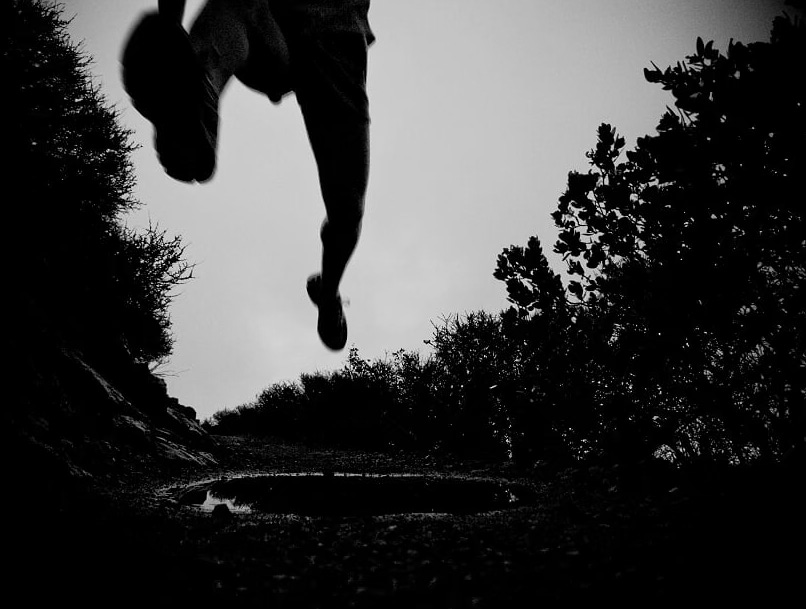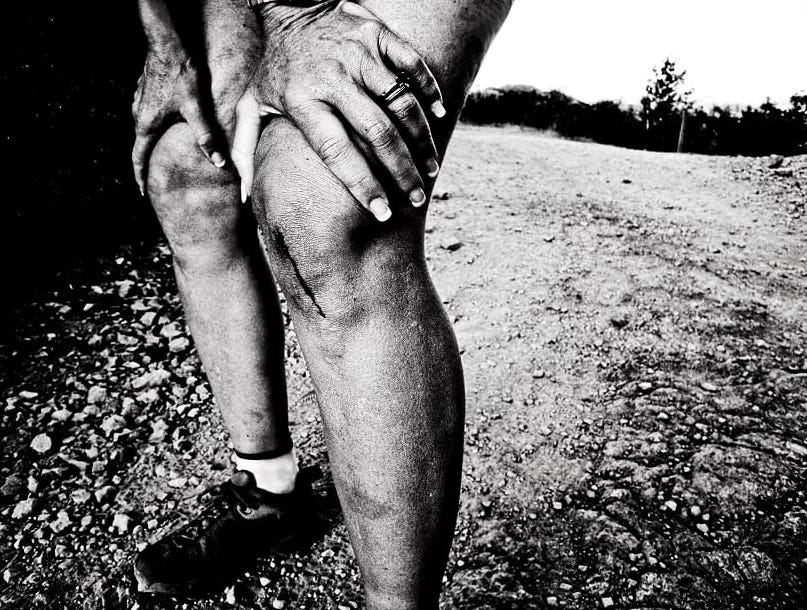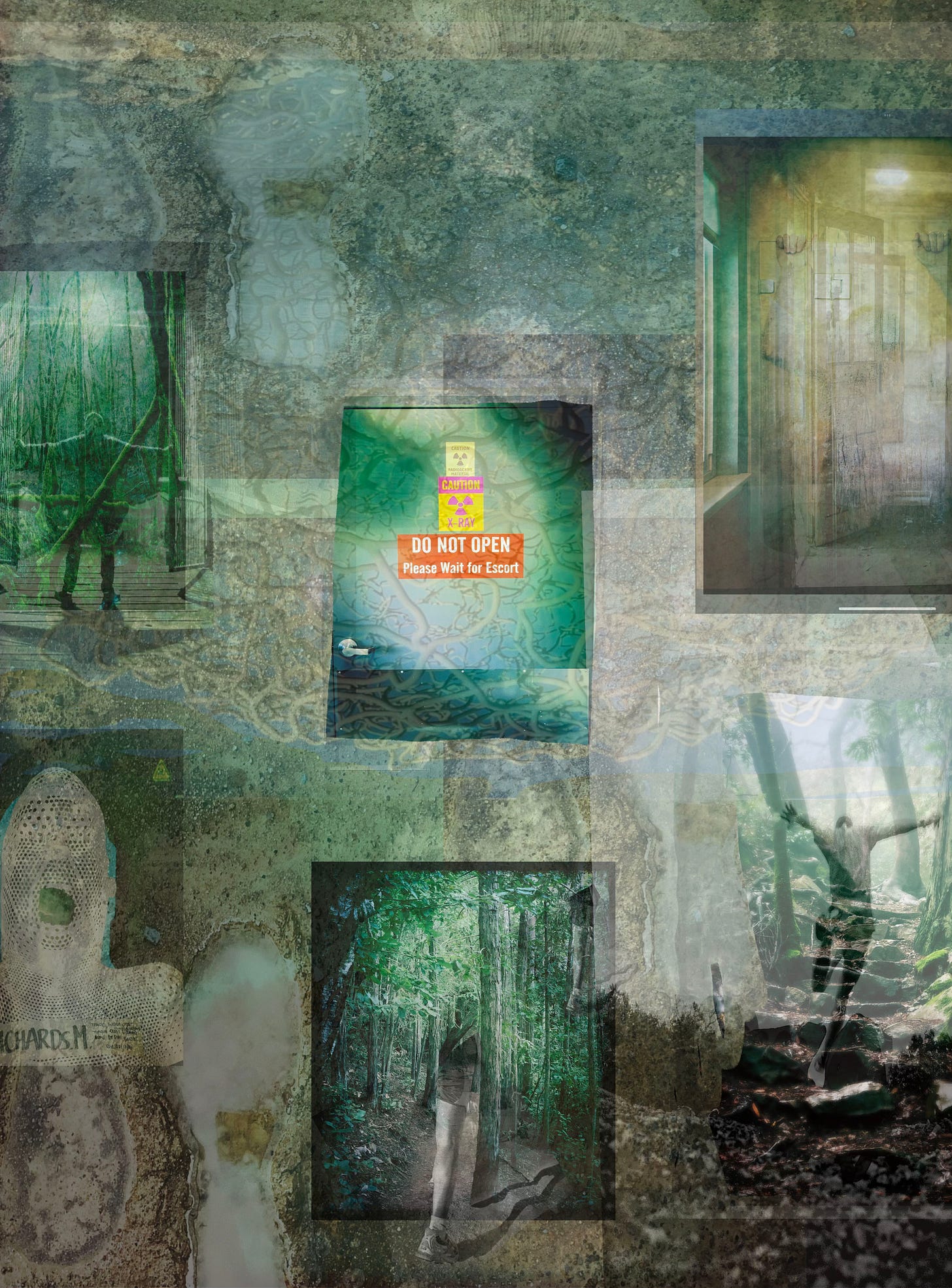The "SOME PEOPLE" Essays
My Body Wants to Live by Mark Richards | Edited by Kimberly J. Soenen April 12, 2025
There is an added darkness that looms over people who fall ill in the United States. Illness on its own is dark enough, but navigating Commercial Health Insurance and the healthcare ecosystem—one intentionally designed to confuse and deny patients care—is dispiriting to say the least.
I have a rare form of cancer. I’ve had extensive treatment. I’ve taken opioids, barbiturates and narcotics to ease the mind-bending pain of my illness and the treatment for my illness. I’ve stayed in bed, I’ve pushed too hard, I’ve cried. Sometimes I pass the day and consider living an achievement. Other days I trail run to see if my body will return to me.
I consider myself fortunate to be alive. I did not choose this time, this place, this way. This illness and my response to treatment are all out of my control.
I grew up affected by the unaffordable cost of healthcare in the United States. That lack of access affected my lower middle-class family immensely as far back as 1960. The cost of out-of-pocket medical care costs impacted my life, my family, my marriage and contributed to my divorce.
So, the ways in which unaffordable healthcare impacts persons is far greater than many suggest. I have also lived under that cloud of a fear, knowing that at any given time, I am just one car accident, one disease, one unlucky fall away from being on the stairway down to loss and despair. This is a stairway that all Americans are exposed to daily. Some people walking though life full of sunshine, good times and plenty of money can, in an instant, find themselves stumbling down these stairs. I hope we can do something about these stairs because they are broken.
Having the taxpayer-financed Veterans Administration cover my medical expenses was like winning a lottery. The lottery I played when I was 17 years-old was joining the military. How many more people deserve this medical coverage just as much, if not more so, then I do?
Life is not fair. It’s not fair I got cancer. Not fair I get my healthcare covered by taxpayers because I served in the military, and others do not, but I accept it. I need it. I only wish more people—everyone—could get the quality of care and medical coverage I’ve received during my illness rather than just some people. That, to me, would be fair.
But I do wish there were more sunlight. I wish the thinking about health and the body in the United States would change. I wish we would especially retire that warrior language. The Warrior, The Fighter, Winning the Battle Against Cancer.
As a photojournalist, I almost died from Malaria while on assignment. I’ve survived machine-gun fire and bombs in the field. Receiving medical treatment is not fighting a war, a battle. You not part of an army. You are very much alone. Even when you are surrounded by people, while sick, you feel alone.
To fight, all you need to do is get on the bus. The bus makes the route to treatment, so you don't need to drive. A bus drives the same route repeatedly…over and over again. The same route. The bus is slow, but it gets you there. Just show up for your treatment. No need for you to have a weapon. Just getting on the bus is the weapon, the achievement.
Are bus riders brave? No. Some days it's raining, some days it's very cold. Some days I feel like vomiting. Some days I vomit.
You see, bravery is not about fighting or being a warrior. Bravery is about the opposite. Bravery is surrender. You can be 13 or 38 or 70 or 87 years-old. Get on the bus, and just put one foot in front of another to get to treatment.
Step, push, lift, sit, breathe. Step, push, lift, sit, breathe.
When I trail run it's hard. I don't always feel good, and sometimes I want to stop. No matter how hard I want my former body to return, I still run with the body I have. The body is sovereign and trail running is the only time I’m not being poked, prodded, scanned, treated, examined or recovering.
Trail running has taught me that I can do only so much. When I started trail running after my diagnosis, I was at six feet four inches tall, weighing 215 pounds and wore size 14 shoes. Now, I weigh 190 pounds, and am six feet two inches tall, but I still run, even after treatment. I’ve learned to ignore my body in that my mind will stop me long before the 1500 feet of climbing and six miles will.
There’s something to being in motion, rock after rock, under open skies, over the creeks and into the tunnels of trees. I know my body is far from 100% now, but even after all the cancer treatment, all the pain, all the loss, all the frustration, all the fear and despair…my body still wants to move. It wants to live.
We all want to live.
I learned to run away to save myself.
I once ran to religion.
Then I ran to escape being lost by joining the Navy.
I ran to Burma, Cambodia and Afghanistan.
I ran to marriage. Family. Work.
There also seems to be a lot of running away from, in this life.
Treatment for cancer has taken many pieces of me away. I am being disassembled one piece at a time. So, now, I am running toward my past and memories on Mount Tamalpais. Running is a thin string of primal strength that keeps me tethered to what can’t be cut out, or quieted by fatigue, or destroyed by broken will or drown by drugs and medication. That thin string—my feet connecting to the Earth, step after step after step after step— keeps me alive.
On this giving, generous, majestic mountain, all of these rocks under my feet, this soil, these creeks, and the tunnels of trees I run through like a child, contain pieces of me, and us.
Connect, push, lift, breathe. Connect, push, lift, breathe. Connect, push, lift, breathe.
ABOUT
Mark Richards's work has been featured in numerous publications internationally. His book, Core Memory: A Visual Survey of Vintage Computers garnered international acclaim upon its release. Learn more and follow his ongoing art and work here. Richards resides in California. All photos and photo art illustrations published by “SOME PEOPLE” are by Mark Richards.








